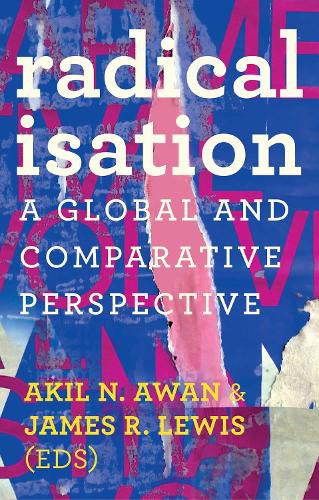Readings Newsletter
Become a Readings Member to make your shopping experience even easier.
Sign in or sign up for free!
You’re not far away from qualifying for FREE standard shipping within Australia
You’ve qualified for FREE standard shipping within Australia
The cart is loading…






Radicalisation has become an important part of the twenty-first-century security and political landscape. It is a seemingly ubiquitous term, employed by academics, policymakers, civil society actors, practitioners and media alike, in ever-expanding ways–describing everything from changing domestic social movements to the growth of international terrorism. This volume provides a comprehensive treatment of ‘radicalisation’: the processes during which individuals or groups adopt increasingly extreme political, social or religious beliefs, positions or aspirations, particularly in cases associated with the use of violence. Adopting a multifaceted and comparative approach, the contributors interrogate this phenomenon from wide-ranging social, ideological, religious and historical angles.
The first part of the book explores how academia has engaged with the concept of radicalisation, including the ontological and epistemological concerns of Critical Terrorism Studies; theoretical models for understanding radicalisation; and approaches to radicalisation through the various lenses of identity, gender, youth and media. The second part explores manifestations of radicalisation through a range of diverse case studies, including the Falun Gong movement; Aum Shinrikyo; Far-Right trans-nationalism; white nationalist lone wolves and the ‘Great Replacement’ thesis; ISIS and Western jihadists; deradicalisation programmes; hero myths; the Extreme Right in Eastern Europe; and the dark side of globalisation.
$9.00 standard shipping within Australia
FREE standard shipping within Australia for orders over $100.00
Express & International shipping calculated at checkout
Radicalisation has become an important part of the twenty-first-century security and political landscape. It is a seemingly ubiquitous term, employed by academics, policymakers, civil society actors, practitioners and media alike, in ever-expanding ways–describing everything from changing domestic social movements to the growth of international terrorism. This volume provides a comprehensive treatment of ‘radicalisation’: the processes during which individuals or groups adopt increasingly extreme political, social or religious beliefs, positions or aspirations, particularly in cases associated with the use of violence. Adopting a multifaceted and comparative approach, the contributors interrogate this phenomenon from wide-ranging social, ideological, religious and historical angles.
The first part of the book explores how academia has engaged with the concept of radicalisation, including the ontological and epistemological concerns of Critical Terrorism Studies; theoretical models for understanding radicalisation; and approaches to radicalisation through the various lenses of identity, gender, youth and media. The second part explores manifestations of radicalisation through a range of diverse case studies, including the Falun Gong movement; Aum Shinrikyo; Far-Right trans-nationalism; white nationalist lone wolves and the ‘Great Replacement’ thesis; ISIS and Western jihadists; deradicalisation programmes; hero myths; the Extreme Right in Eastern Europe; and the dark side of globalisation.